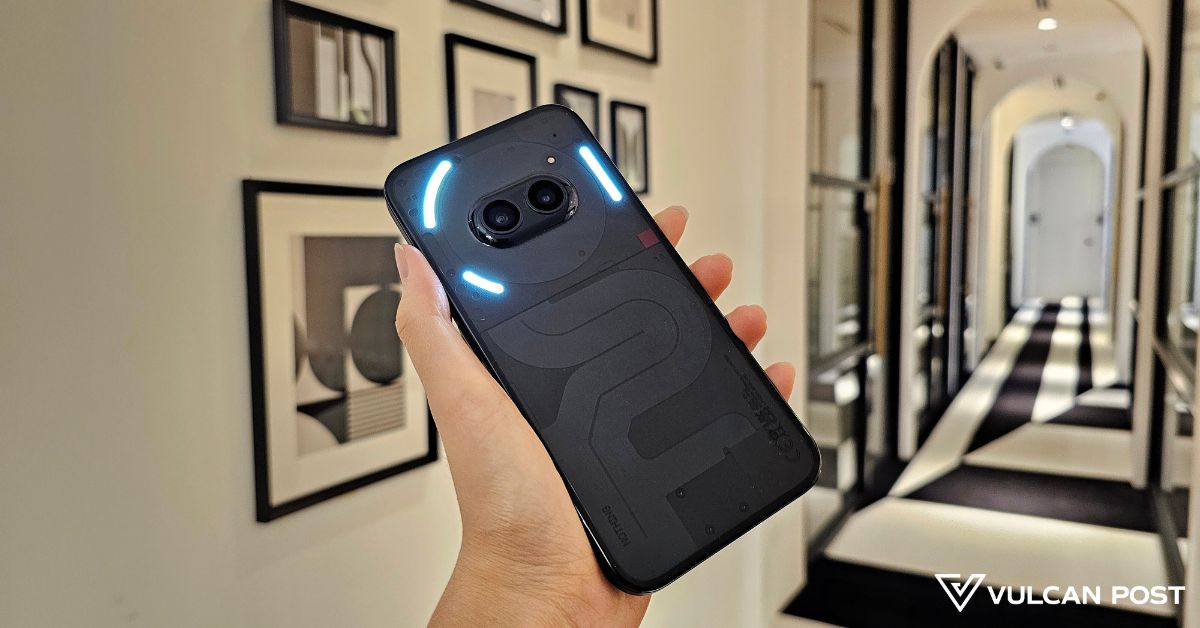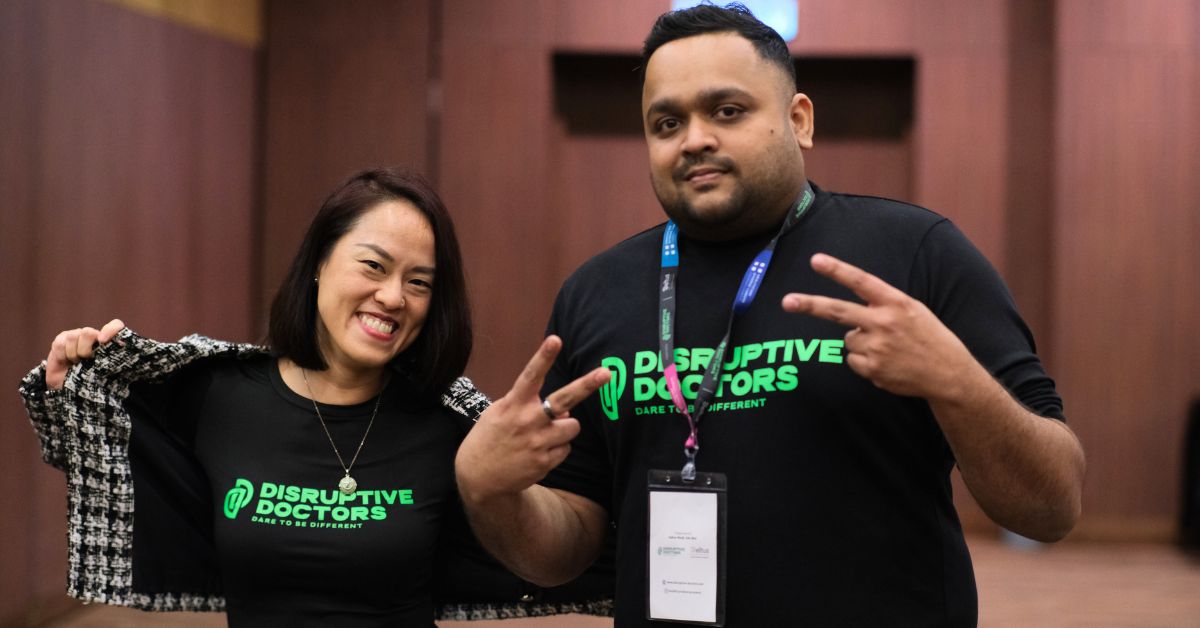[This is a sponsored article with Cyberview.]
In 2020, the pandemic threw a wrench into the workings of the world, disrupting global economies. Locally, 89.9% of SMEs encountered a drop in sales during the first Movement Control Order (MCO).
The demand for e-commerce and digital services skyrocketed overnight; the nation prioritised from-home solutions, shoving brick-and-mortar shops into an unfavourable position. And if they didn’t adapt to meet the changed demands of consumers, they faced closure.
To support businesses that are pivoting to be demand-focused, accelerators like the Cyberview Living Lab Accelerator (CLLA) found themselves needing to change as well.
Note: Cyberview is a Tech Hub Developer, spearheading the development of Cyberjaya.
Previously, CLLA operated in a Venture-Building Accelerator model, helping startups to be investment-ready, providing networking opportunities, and more. But now, they’ve pivoted to a Demand-Led Accelerator model instead.
Do accelerators even need to evolve?
The Cyberview team detailed the change as a flipped accelerator model, where approved startups tackle specific problems such as infrastructure, transportation and others in Cyberjaya. Basically, CLLA used to help startups solve issues. Now, they’re recruiting startups that can solve the city’s issues instead.
This shift is part of Cyberjaya’s new masterplan, mandated by the government to supercharge the development of the smart city into a Global Technology Hub.
Shafinaz Salim, the Head of the Technology Hub Development Division for Cyberview said the new accelerator model is a response to the ever-changing consumer demands.

Testing products in real-life conditions
Cyberview wants to foster and build up startups that excel in these specific areas: Artificial Intelligence (AI), Fintech, Internet of Things (IoT), Retail Tech, Smart Mobility, Smart Healthcare and Digital Creative.
They hope these startups will come up with disruptive technologies that can bring change to the industry and propel the growth and development of the sector. The end goal is to improve the nation’s digital capability and the livelihoods of Malaysians.
One of the alums of CLLA, MedKad, shares the same vision—to create a solution that is of good quality, affordable and convenient for the community. MedKad is a medical benefit management platform that helps employers and companies to automate the process.

Ezuan Yaacob, the CEO of MedKad said that Cyberjaya’s accepting community is one of the key benefits of the programme. Testing their solutions in real-life situations helped the team to get invaluable experience, which can then translate into better end products for the general public.
To date, MedKad has successfully onboarded 90% of the medical clinics in Cyberjaya, consisting of GP clinics, hospitals, dental and optical centres.
Ezuan shared 2 key traits that demand-led startups should have: to be always aware of current market trends, and also to look out for strategic collaborations.
Going further together
Darween Reza, the CEO of My Conceptual Robotics (MyCRO), another alumni of CLLA, takes collaborations very seriously too. MyCRO is a startup that focuses on R&D solutions, particularly in deep tech and robotics.
“It’s not always a competition. Even for those within the same industry, it’s not about who can do it better or faster all the time,” said Darween.
Giving further context, Shafinaz explained that at CLLA, they value the power of teamwork and collaboration in tackling challenges. After managing 85 startups across 15 cohorts, their programmes are designed to prepare and help the startups build relevant connections that can help them face challenges head-on.

Through CLLA, MyCRO collaborated with several public universities in Cyberjaya to test out one of their projects. They built a cloud-based dashboard that allows a factory owner to track a building’s usage of power, water, and more, without being there physically.
As a startup hand-picked by CLLA, MyCRO is adaptable as well.
To assist Malaysians with the daily routine during the pandemic, they teamed up with University of Malaya to build an IoT smart thermometer that allows users to track their body temperature using an app.
Darween shared that the journey to be a demand-led startup is a difficult one, and they’re still working their way towards that goal. He believes that a company can prosper if there’s demand and support, but what remains the same is that businesses need to be agile and adapt to the current situation.
“I like the idea of fail fast, recover fast. A good entrepreneur must always be on his toes,” said Darween.
Pacing yourself to match your capabilities
A demand-led startup is not built in a day. Nik Muhammad Amin, the CEO of Moovby, believes that any demand-led startup faces a chicken and egg problem. If there’s no demand, there’s no solution—and vice versa.

He said that persistence is key, but you have to start small first. “Over-engineering can be poisonous and can even potentially kill a startup.”
As another player in the smart city, Moovby is a peer-to-peer car-sharing platform with a goal to integrate into the regional transportation system. Nik mentioned a few key benefits of car-sharing: to reduce the environmental impact of commuting, reduce the demand for parking, and increase regional economic activity.
CLLA has taught his team to build a product that fits the market, to better understand acquisition strategies and the importance of marketing and branding for a demand-led startup.
Nik believes that startups should not rush into things just because they want to succeed. “It’s not easy to get users. Make sure you build a strong brand presence and gain trust first.”
-//-
If these sharings from CLLA alumni have caught your interest here are some criteria that you’ll need to fulfil to join the programme:
- Must have a Minimal Viable Product (MVP),
- Be current, relevant, and adaptable to the post-pandemic era,
- Be at a stage that can be sustainable,
- Strong proponents of digitalisation and aligns with Cyberview’s new tech focus areas,
- Have a solid team with strong founders or co-founders.
- For more information on the Cyberview Living Lab Accelerator (CLLA) programme, click here.
- Find out what we’ve written about Cyberview in the past here.
Featured Image Credit: Nik Muhammad Amin, CEO of Moovby / Darween Reza, CEO of MyCRO and Ezuan Yaacob, the CEO of MedKad, from Cyberview









